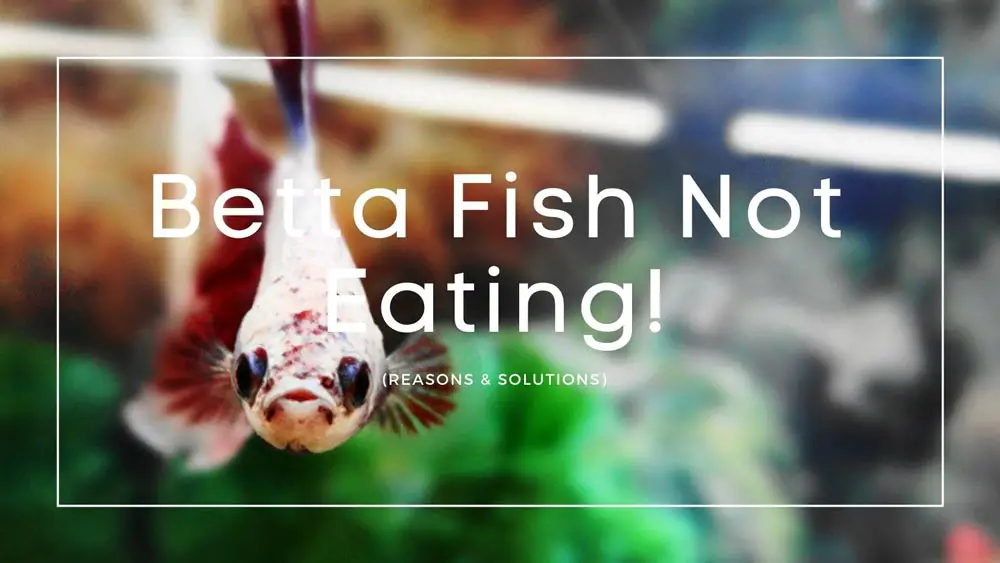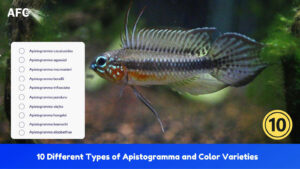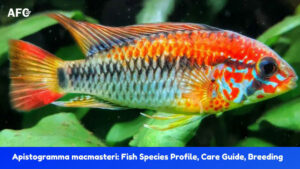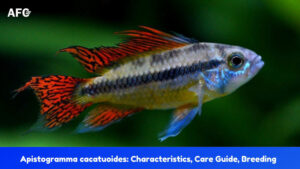If you go through all the trouble of setting up a tank and taking care of your fish, you obviously want them to do well and live healthy, happy lives. So, when you notice one of your Bettas is not eating, that is worrisome.
Usually, it’s nothing you need to worry about. However, there are some cases where their lack of eating is a symptom of something more serious. Either way, you should do some investigation to either rule out the serious issues or begin treatments if needed.
This guide will take you through all the reasons why is your betta fish not eating and what you should do about it.
Why is My Betta Fish Not Eating?
There are a variety of reasons your Betta may have stopped eating. One thing to consider is that even when you think your Betta has stopped eating, it may actually be eating without you being aware of it. Keep an eye on your Betta during feeding time, and make sure there aren’t any other factors affecting your Betta’s appetite.
Could My Betta Fish Be a Finicky Eater?
More often than not, you will discover that your Betta is not eating because it’s a finicky eater. Suddenly changing foods on your Betta can cause them to stop eating. If you suspect this to be the case, try feeding it their previous food. If they eat that food without any problems, then more than likely, you Betta is just being finicky.
The Solution to Finicky Eaters
There are two possible solutions, one being simple and the other a little more difficult. Obviously, the easiest solution here is to feed your Betta fish the food it likes instead of trying to switch foods on them. However, doing so can cause more issues in the long run.
It’s quite common for Bettas to prefer a certain brand or type of food. The issues occur when you are unable to purchase that particular brand or type of food.
In order to avoid a scenario such as this, you should diversify your Betta’s diet, feeding them a wide range of foods. One of the things you can do is to offer your Betta fish a variety of different foods until it is no longer fussy about what it eats.
Another option is to stop feeding your Betta fish for a couple of days, thereby putting them on a fast. Once the fast is over, you should try to feed your Betta fish the foods that it didn’t want to eat originally. After having fasted for a couple of days, your Betta should be happy to eat whatever you feed it.
Could My Betta be Unaware That it is Food?
In the case of flake food and pellet food, your fish may not realize that what you’re feeding them is actually food, especially if you’ve never tried to feed it to them before.
Typically betta fish breeders only feed their fish a variety of frozen, live, and freeze-dried foods. By the time you purchase your fish, they are already used to that type of diet. Introducing flake and pellet foods may take a while because your fish may not realize that it’s actually food.
The Solution to Introducing New Foods to Your Betta
For this situation, the best thing you can do for your Betta fish is to continue offering them that particular food until they begin eating it. Typically, it will take two to seven days to adjust to the new food and begin eating. If they insist on not eating the food after this time period has passed, you might have a finicky eater on your hands.
Try not to let your Betta go more than three days without eating. At this point, you will be causing more harm than good. Make sure you have backup foods that you know your Betta fish will eat, just in case.
Another thing to remember is to remove any food that goes uneaten from their tank within ten minutes to avoid the food sitting in the tank and rotting, producing harmful ammonia.
Could My Betta Not Like Food That is Still Frozen/Freeze-dried?
Freeze-dried and frozen foods are good for Bettas, but some fish will not touch the food until it has adequately thawed. If your Betta fish is ignoring the food altogether, it may be because the food hasn’t softened yet from being frozen.
Some freeze-dried and frozen food will begin to expand when it starts absorbing water again. This causes a problem when your Betta eats the food too fast. The food might continue to expand in their stomachs, which can cause constipation and possibly swim bladder disease.
The Solution to Feeding Your Betta Frozen and Freeze-Dried Food
The simplest solution is to make sure the food is sufficiently thawed out before you give it to your Betta fish. To ensure the food has been properly thawed out before you feed it to your Betta, try putting the food into a small amount of tank water and let it thaw out before serving it to your fish.
Why is My New Betta Fish Not Eating?
When you introduce a new Betta fish to your tank, it’s natural for them to refuse food at first. Moving to a new tank and getting used to living in a new environment is stressful for a fish. If you bought your Betta online and it was shipped, the stress of being shipped can sometimes be overwhelming.
(Check out the safe and easy way to introduce your new betta fish to a community tank)
The Solution to Getting Your New Betta to Eat
The most simple solution for getting your new Betta fish to eat is giving them time to get used to the tank and settle in. Try turning the aquarium lights off for a day or two. Feed them in the morning and again in the evening. If your Betta fish still doesn’t want to eat the food you fed it, remove the food after ten minutes to keep it from polluting the tank.
Am I Overfeeding My Betta?
If you aren’t paying attention, your Betta fish might actually be eating without you realizing it. Did you know that your fish’s stomach is approximately the size of its eyeball? If you are feeding it too much food, your Betta fish won’t be able to eat all of it, and you will notice food floating on the surface of the water. This could lead to you making the wrong assumption about your Betta fish is not eating.
The Solution to Overfeeding Your Betta
The solution is pretty straight forward, once again. Don’t overfeed your Betta fish. Your Betta only needs one or two pellets of fish food twice a day. If you’re feeding your Betta flake food, all it needs is a small pinch, the equivalent in size to the pellet food. Remember, don’t try to feed it more than its stomach will hold.
Could the Quality of the Food Cause My Betta to Stop Eating?
When buying fish food in a chain pet store, you want to avoid the really cheap brands. The cheap brands are made up of cheap ingredients. If your Betta fish has stopped eating its food, it could be because the quality is poor.
The cheaper foods don’t offer the balanced diet that your Betta fish needs to stay healthy. Even some of the good quality foods may be lacking in a healthy balance of vitamins, proteins, and nutrients.
The Solution to Poor Quality Foods Causing Your Betta to Not Eat
Bettas need a diet rich in variety to maintain optimum health. When feeding your Betta a high-quality pellet, you will all need to add frozen, live, or freeze-dried food to its diet.
Occasionally, feeding your Betta fish live foods mixed in with their freeze-dried daphnia and betta pellets will provide the balanced diet your Betta needs.
Could a Problem With the Water Temperature Cause My Betta to Stop Eating?
The water temperature of your Betta’s tank needs to be just right. Because they are cold-blooded, the water’s temperature has a significant impact on their energy.
If the water’s temperature is too cold, it will slow down your Betta’s metabolism, which results in lethargy. A slower metabolism will also slow down the digestion of food, and it will not eat as much as usual.
You may not realize that the colder water temperatures can cause temperature shock, killing your Betta fish.
The Solution for Water Temperature Irregularities
If you don’t already have one, you should look into getting a heater for your tank to ensure the water remains at a steady temperature of 78°F. Even if the general climate is warm, all it takes is a colder night to change the water temperature in smaller tanks drastically.
Could a Change in My Betta's Environment Cause Them to Stop Eating?
Even the smallest change in their environment can affect a Betta’s sensitivity. If the water parameters take a downward turn, this can affect your Betta’s appetite. Ammonia spikes are usually to blame. However, any foreign chemical that gets into the tank can also affect your Betta’s eating.
Sometimes, even a simple water change can throw off your Betta’s environment enough to cause them to stop eating for a while. The new water will have a different ammonia level, pH level, etc., than what your Betta fish is used to. Your Betta fish will go back to eating properly once they become adjusted to the new water from the water change.
The Solution to Ensuring Your Betta Eats After Routine Water Changes
Normally, if your Betta refused to eat after a routine water change, all you need to do is wait for the next feeding, then try again. If they still refuse to eat, double-check the tank’s water parameters to make sure there are no issues that need to be resolved. Once resolved, you Betta should go back to eating normally.
What if My Betta is Sick?
When your Betta is sick or has a disease, its appetite will be the first thing to suffer. You will see other symptoms that will clue you in that there is something else going on. Swim bladder disease, constipation, and dropsy call all cause your Betta to lose its appetite.
The Solution for Feeding a Sick Betta
If you suspect that your Betta is sick or has a disease, you need to respond quickly. If left untreated, many diseases can prove to be fatal. If you are unsure of the type of illness or disease your Betta may have, check out some of the other articles on our website for more information.
Recap
There are a variety of reasons your Betta has stopped eating. Most of these reasons are really a big deal, but there are some reasons that you should be concerned with. To recap:
- Your Betta could be a finicky eater. If so, purposely feed it a variety of foods until it eats them willingly.
- Your Betta doesn’t know it’s actually food. Keep trying until it catches on and begins to eat.
- Your Betta doesn’t like frozen or freeze-dried foods. Soak the foods in a little bit of tank water before giving it to your Betta to eat.
- Your Betta is stressed out. Turn off the lights for a couple of days, then try feeding it again.
- You aren’t aware that your Betta is actually eating. Watch your Betta carefully when you feed them and make sure you don’t overfeed them.
- Your Betta doesn’t like cheap food. You should only feed your Betta high-quality foods to ensure it gets a balanced diet.
- Poor water parameters caused your Betta to stop eating. Monitor your water parameters regularly.
- Your Betta is sick. Monitor the symptoms and treat any illnesses or diseases quickly.
The key to keeping healthy and content fish is ensuring that you monitor their health, behavior, and environment on a regular basis.





